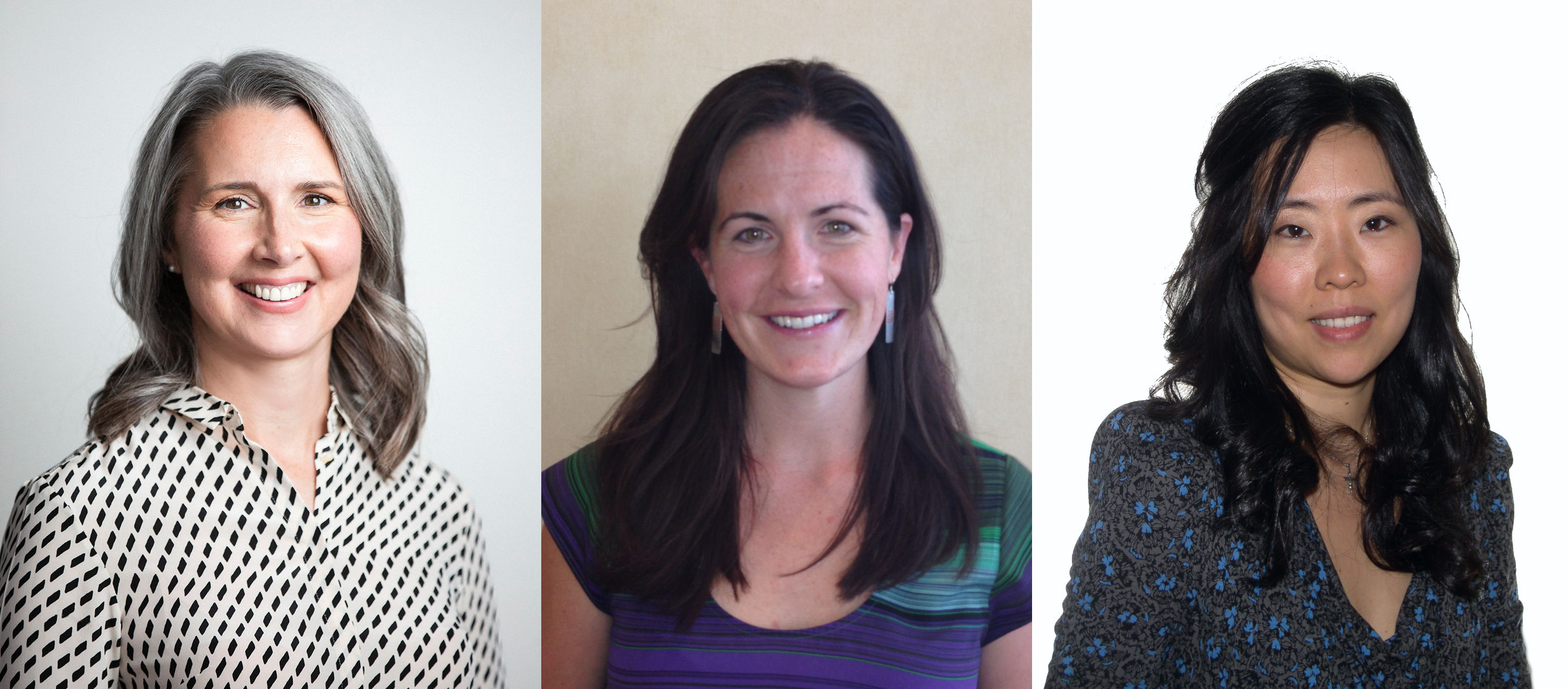Faculty of Medicine & Dentistry chosen to participate in global Social Accountability Fellowship
Jennifer Fitzgerald - 4 June 2024

Kathryn Dong, Katherine Smith, and Minn Yoon. Photos supplied.
Kathryn Dong, social accountability lead for the Faculty of Medicine & Dentistry, along with assistant clinical professor Katherine Smith, social accountability lead MD program, and associate professor Minn Yoon, are engaging in a transformative Social Accountability Fellowship aimed at incorporating global best practices and principles at the university and within our community.
“This program empowers leaders to implement meaningful changes that directly respond to the unique health needs of the communities they serve,” says Dong.
The fellowship focuses on the university leadership's ability to implement social accountability practices, involving key positions such as deans, senior administrators and directors. It is a collaboration between The Network: Towards Unity for Health, NOSM University (formerly known as Northern Ontario School of Medicine) and the University of Limerick.
In Dong’s role as social accountability lead, she has been working with the Social Accountability Steering Committee to understand how the faculty can refine and increase engagement with the communities it serves. Her position is pivotal in shaping a community-driven framework that not only addresses immediate health concerns, but also tackles the enduring impacts of colonialism, racism and inequitable health-care access.
Throughout the fellowship, which commenced in November 2023 and will conclude in June 2024, Dong, Smith and Yoon will use the Institutional Self-Assessment Social Accountability Tool to assess recruitment, education methods, governance and societal impact. “The assessment will identify strengths and areas for improvement, providing a roadmap for future development,” she says. Insights gained from international colleagues will further enrich the faculty's strategies and strengthen innovative approaches to health professions education and community collaboration.
“Our vision would be to submit the assessments for international review," explained Dong. “This process aims to secure an international verification, providing a clear indicator of where the programs stand in terms of global standards and publicly asserting our commitment to social accountability values and standards.”
“This structured approach ensures that no crucial aspect is overlooked and that the faculty's efforts are in sync with international practices,” she adds.
Strengthening community and student involvement
The fellowship has been a personally rewarding experience for Dong, connecting her with global peers who share a passion for improving population health and reducing health inequities. “These connections are vital for ongoing collaboration and resource sharing, particularly with Canadian counterparts who face similar challenges and opportunities,” she says.
Social accountability resonates deeply with the students at the Faculty of Medicine & Dentistry, many of whom are eager to engage in socially accountable practices. The Social Accountability Steering Committee, which supported the team members to join this fellowship, is seeking to directly involve more students in developing the faculty's vision for social accountability.
As this fellowship progresses, the anticipation grows not only for the practical outcomes it will yield but also for the broader influence it will have on education and community engagement at the university.
The faculty’s MD Program Strategic Plan prioritizes a commitment to social accountability by actively integrating the values, strengths, and wisdom of communities who have been structurally marginalized, ensuring their needs and expectations shape and enhance the MD Program.
Dong, Smith and Yoon are committed to the strategic goals outlined in Vision 2025, which emphasizes community accountability and partnerships. “The fellowship is not just a means for professional development but also a platform for creating a more inclusive and responsive health professions education system that prioritizes social accountability at its core,” says Dong.